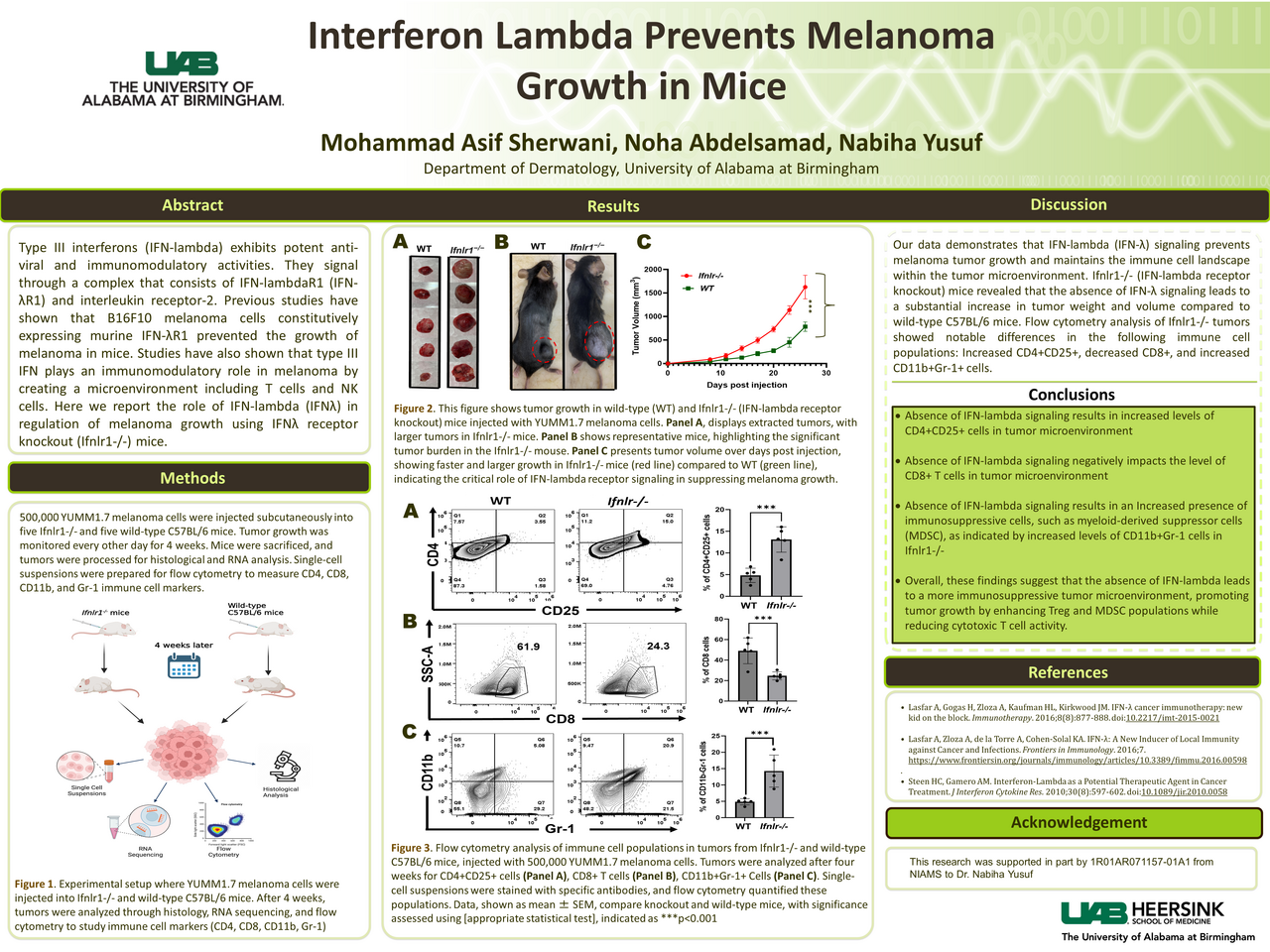Interferon lambda prevents melanoma growth in mice
Type III interferons (IFN-lambda) exhibits potent anti-viral and immunomodulatory activities. They signal through IFN-lambdaR1 (IFN-λR1) and interleukin receptor-2. Here we report the role of IFN-lambda (IFNλ) in regulation of melanoma growth using IFNλ receptor knockout (Ifnlr1-/-) mice.
Published in Biomedical Research

Like
Be the first to like this
Our data demonstrates that IFN-lambda (IFN-λ) signaling prevents melanoma tumor growth and maintains the immune cell landscape within the tumor microenvironment. Ifnlr1-/- (IFN-lambda receptor knockout) mice revealed that the absence of IFN-λ signaling leads to a substantial increase in tumor weight and volume compared to wild-type C57BL/6 mice. Flow cytometry analysis of Ifnlr1-/- tumors showed notable differences in the following immune cell populations: Increased CD4+CD25+, decreased CD8+, and increased CD11b+Gr-1+ cells.
Follow the Topic
Biomedical Research
Life Sciences > Health Sciences > Biomedical Research

Please sign in or register for FREE
If you are a registered user on Research Communities by Springer Nature, please sign in